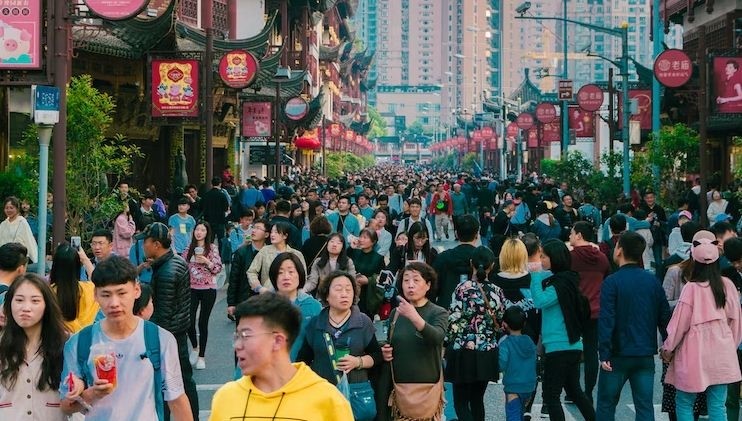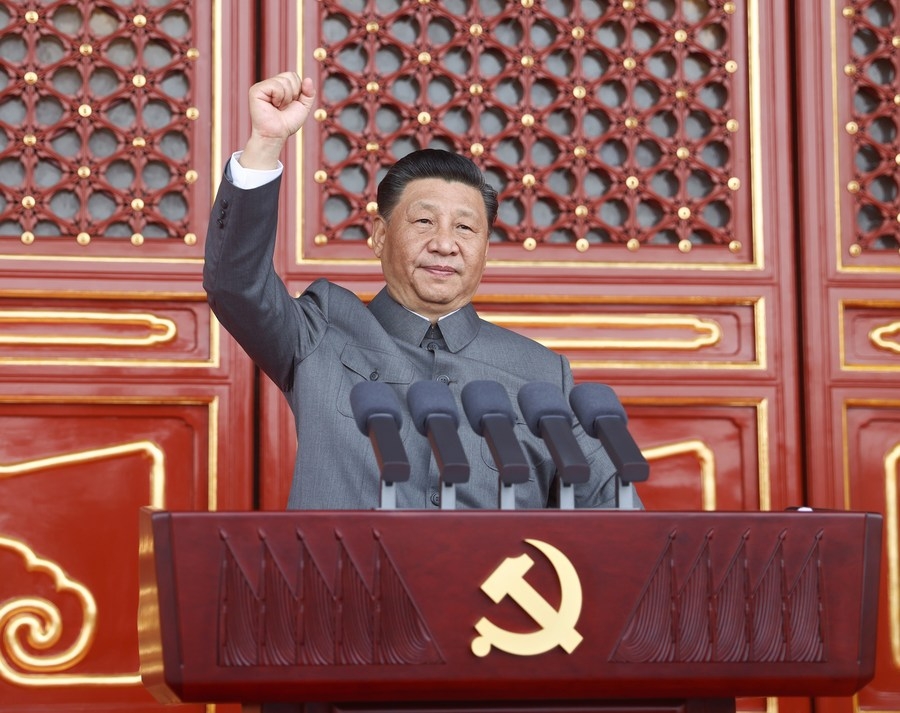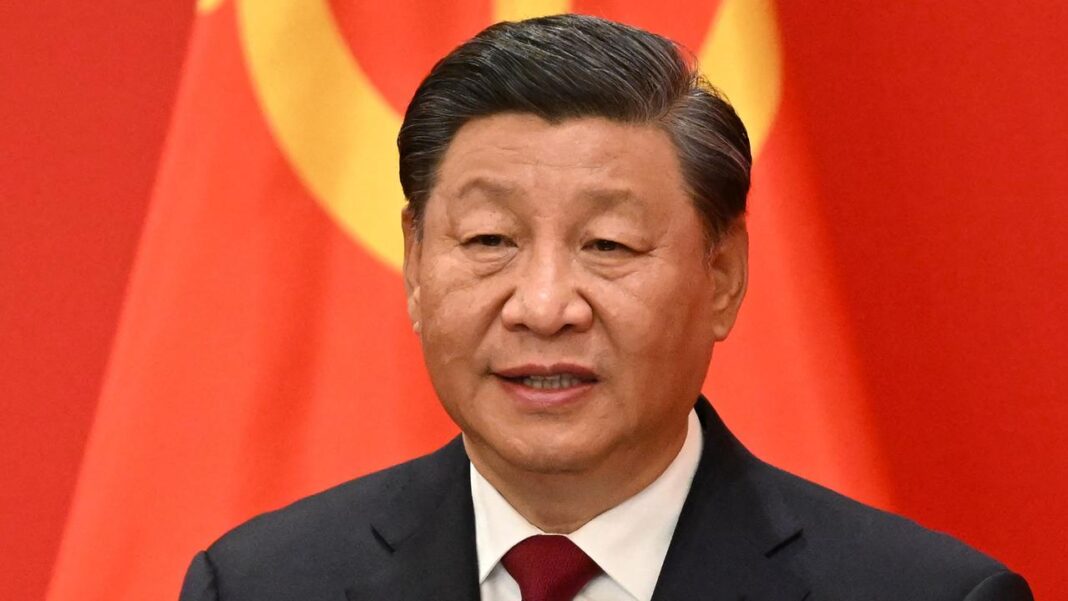Problems brewing in China. A wave of protests swept across China, targeting the authoritarian rule of the Chinese Communist Party (CCP). This marked a departure from the norm, as the CCP had historically maintained a firm grip on the population, suppressing dissent and maintaining control.
In recent times, an unprecedented wave of protests swept across China, targeting the authoritarian rule of the Chinese Communist Party (CCP). This marked a departure from the norm, as the CCP had historically maintained a firm grip on the population, suppressing dissent and maintaining control. The emergence of these protests raised concerns within the ranks of the CCP, as they grappled with the realisation that the discontent could escalate beyond their ability to manage.
The scenes that unfolded across various regions of China found a platform on social media, where videos depicting protest events in Guizhou province, Jiangxi province, and the capital city of Beijing went viral. The spotlight fell on Qianxinan Prefecture in Guizhou Province on January 9, where hundreds of villagers took to the streets to vehemently oppose a new policy imposed by the local government. This policy aimed to centralize the disposal of cremated remains, disrupting the longstanding funeral customs passed down through generations. In a stark clash between the protesters and the authorities, armed police and SWAT teams were deployed, leading to a tense standoff.

CaiFengyu, a local villager, shed light on the situation in an interview on January 16. He revealed that the government had enforced mandatory cremation in 2017, replacing the traditional practice of earth burial. The tensions escalated on that fateful night of January 9 when riot police, numbering in the hundreds, conducted a forceful raid on the village. The ensuing chaos saw villagers being subjected to violence, with reports of beatings and even a pregnant woman becoming a victim. The clashes intensified as the villagers resisted, compelling the riot police to eventually retreat. In a desperate move, the authorities even resorted to taking a child hostage. Despite the harrowing encounter, the villagers stood firm in their resolve, continuing to organize funerals involving earth burial, refusing to comply with the notion of centralized cemeteries, citing the financial burden imposed on the common people.
Meanwhile, in Linchuan, Jiangxi Province, a video surfaced on January 14, featuring a human rights activist denouncing the CCP as “traitorous” and a “cult.” The activist, in a confrontation with the police, questioned the lack of accountability within the regime, labeling it tyrannical. The impassioned speech left the police officers speechless, reflecting the growing frustration and dissent bubbling beneath the surface.
Simultaneously, in another incident on the same day, a video captured a police officer forcibly entering a dinner party for professors at Peking University’s law school. The intrusion drew swift reprimands from fellow professors, who accused the officer of neglecting legal procedures. Senior reporter Gao Yu took to social media to condemn the incident, emphasizing its violation of the law and the blatant disregard for the rights of intellectuals.
In response to the rising discontent, the CCP escalated its efforts to maintain control. Reports emerged of random checks on personal information and cell phones of pedestrians and public transportation users in Beijing. One particularly troubling incident involved three plainclothes individuals claiming to be police officers stopping a woman at Jianguomen subway station. Despite her steadfast refusal to cooperate and questioning the necessity of identity verification, she was eventually taken to the police station for questioning.

Independent Chinese writer Zhuge Mingyang, commenting on the incident, noted the interesting choice of words by the police officer. The officer claimed to have no intention of “persecuting” the woman, indirectly acknowledging the common practice of police persecution by CCP authorities. Zhuge highlighted the significance of this admission, questioning why the officer felt the need to emphasize that there was no persecution if such practices were absent.
Adding to the turmoil, Beijing enforced a ban on electric tricycles from the roads starting January 1. The city council went further, forcibly seizing electric tricycles, even those used by couriers. This prohibition caused significant inconvenience for the elderly, making it challenging for them to reach hospitals, and for parents picking up their children. One elderly citizen, visibly upset, intentionally rode an electric tricycle into the restricted area of Tiananmen Square in protest. The video footage captured the ensuing police mobilization, highlighting the increasing discord between the people and the authorities.
In the face of these protests, ZhugeMingyang reflected on the changing landscape in China. He pointed out that within less than a month into the new year, significant events unfolded with widespread public protests against the CCP’s tyranny. This shift in public sentiment signified a substantial departure from the past when most Chinese people dared not speak out. The CCP’s inability to address and contain the rising discontent indicated a decline in its influence and control.
The phenomenon unfolding in China was not isolated but interconnected, creating a domino effect that the CCP appeared ill-equipped to handle. The protests, fueled by grievances ranging from cultural practices to human rights violations, became a potent force challenging the authority of the CCP. As the discontent spread, the CCP found itself on uncertain ground, grappling with a population that was increasingly unwilling to accept its dictates.
The recent wave of protests in China represented a significant turning point in the relationship between the CCP and the Chinese people. The once-docile population had found its voice and pushed back against the authoritarian measures imposed by the government. The diverse nature of these protests, ranging from cultural concerns to human rights issues, highlighted the multifaceted dissatisfaction brewing within the society. The CCP’s response, marked by heavy-handed tactics and a disregard for legal procedures, only served to further fuel the discontent. As the year unfolded, the dynamics between the CCP and the people undoubtedly continued to evolve, shaping the trajectory of China’s political landscape.

